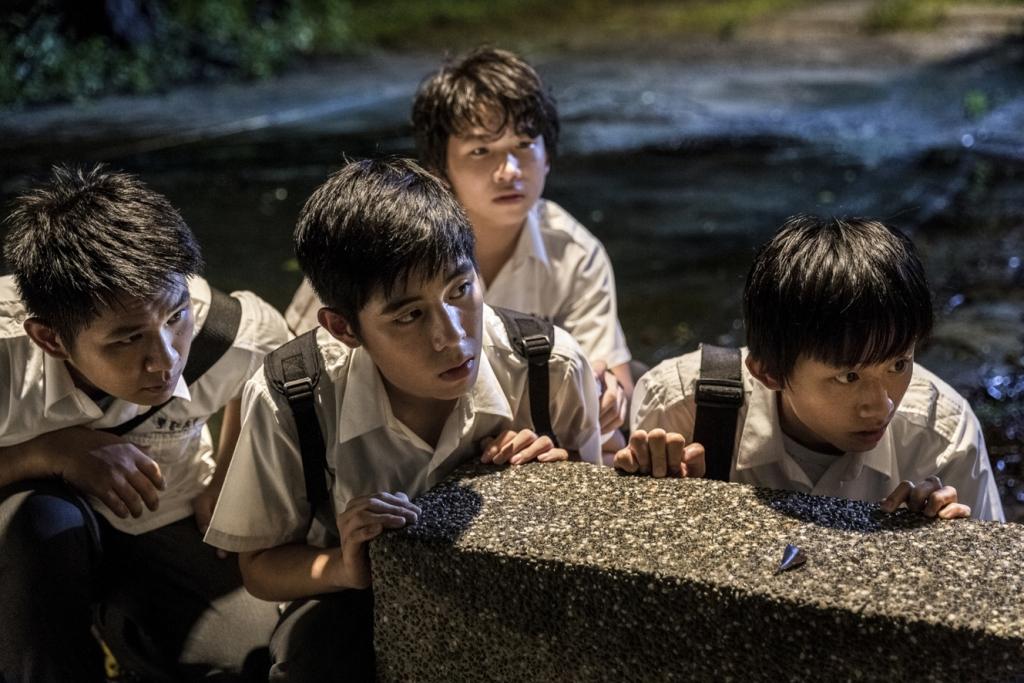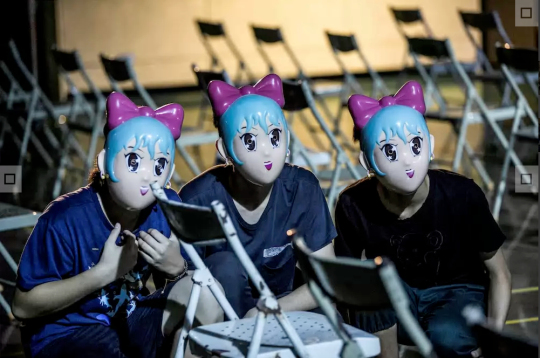Director: by Yee Chih-yen
The first feature-length release from director Yee Chih-yen since 2002’s acclaimed Blue Gate Crossing, the award-winning Salute! Sun Yat-Sen (aka Meeting Dr. Sun) is proof that a film which is light in its drama needn’t be trivial in its insights. A heist flick refreshingly free of the genre’s many tired clichés, the movie carries an old-fashioned charm reminiscent of the heartfelt working class comedies of Charlie Chaplin’s tramp, but more unusually, it also retains the social awareness of those films. This is an earnest tale of disaffected youth made by people who realise that charisma can be more persuasive than an air of self-seriousness in making us care about current issues.
The film’s cultural relevance is evident from the title, referencing the Chinese revolutionary and Taiwan’s “Father of the Nation,” Dr. Sun Yat-sen. The sons of the nation seem to be getting a raw deal as Lefty and his friends live in financially challenged conditions and struggle to pay for their tuition. A simple plan is hatched to get some money by stealing a precious statue of Dr. Sun from their school, but another group of young men, led by an even poorer boy, soon emerges with the same idea. After initial negotiations to team up swiftly break down, the heist becomes a battle of wits but their arbitrary division could be the downfall of both sides.
The film carries a clear underlying message that the situation of these boys won’t improve unless they learn to work together, framing the central caper as a revolution of youth. The statue of Dr. Sun looks at its proudest when its own theft is a coordinated, purposeful effort. At the same time, Lefty’s gang is shown to be distrustful of all adult passers-by as they discuss their plans, and understandably so. Feeling stiffed by the older generations, it’s only natural that they decide to take matters into their own hands.

Following through on the empathetic viewpoint suggested by the film’s thematic content, Yee Chih-yen offers a unique perspective of how adolescent males interact with each other and the world around them. The director recognises that most boys in their early to mid-teens don’t yet lie, bluff or emote like mature adults. In his film, they operate by their own delightfully awkward logic.
When Lefty’s gang, for example, want to find out who a notebook they found on the street belongs to, they place it on the ground and crouch behind some plants as they wait for someone to come back and retrieve it. When no one comes, they suspect the book’s owner thinks he or she might have lost it in the school corridor, so they leave the book on the floor at school while again watching from a hiding place.
Their methods are naïve but supported by a distinct rationale, like a toddler covering his own eyes to avoid being seen. An accompanying piano, meanwhile, underscores a nostalgia to their undertakings that finds more pleasure in the journey that these young men take than their destination.
For all the film’s amiable silliness, Yee does find time to squeeze in some more openly melancholic moments, but it’s in the mixing of these two modes that Salute! Sun Yat-Sen finds much of its poignancy. The film ends on a triumphant, touchingly hopeful note that celebrates the spirit of its unruly characters. Their unsophisticated scheming and spontaneous clowning suggest an inner chutzpa which the film believes they could put to constructive use if they don’t let petty conflicts keep them on society’s lowest rungs.
Watch Salute! Sun Yat-Sen now over at FilmDoo.com! (UK & Ireland only)






One thought on “FILM REVIEW: SALUTE! SUN YAT-SEN (2014, TAIWAN)”